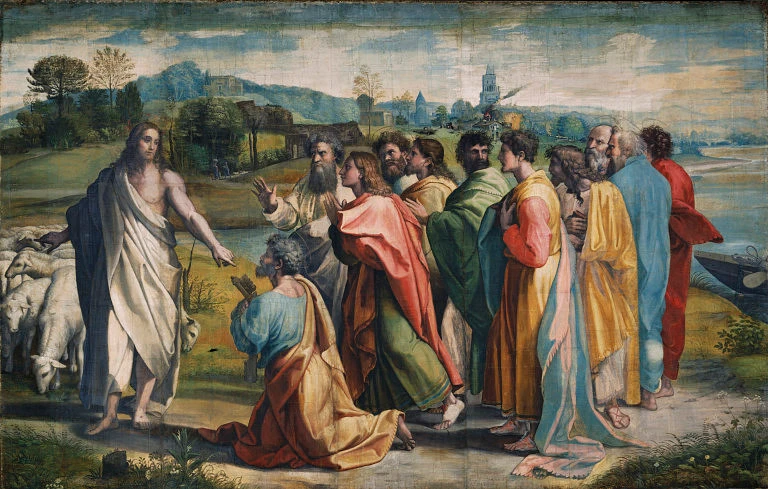Jijo Kandamkulathy, CMF
Claretian Publications, Macau
Mk 8:27-35
24th Sunday in Ordinary Time – Year B
Gospel Reflection
The gospel today narrates a survey Jesus does with his disciples about his public image. He does not do this exercise to increase his impact, or to reveal the divine plan of the Messianic mission and contrast the public expectation about his mission.
The actual image of Jesus is his closely-guarded secret, the Messianic secret. He would silence anyone who would try to proclaim him as the Messiah, or the Son of God in the synoptic gospels. Experts propose two possible explanations about keeping the Messianic secret: 1. Jesus was aware that the image of the Messiah that people had was a mistaken one and so he did not want to conform to the public expectation of the Messiah. 2. Jesus was aware that the Messianic mission of the Son of God should be ultimately revealed on the cross.
In this enquiry, the disciples talk about the public image of Jesus as a prophet of some extraordinary prodigy. They compare him to John the Baptist who took on Herod fearlessly which heightens the expectation of people that Jesus is John the Baptist back with a project to demolish the unpopular Herod who had killed him once. The other image is of Elijah. The return of Elijah is linked to the desire of cleansing idol worshippers, in this context, the Romans. Elijah had killed the prophets of Baal in an offering test (1 Kings 18). Elijah is a prophet who did not die, but was taken up to heaven and the Jews expected him to return one day to prepare the way for the Messiah (Malachi 4:5-6). It is to this expectation that Jesus responds while saying that Elijah has already returned, indicating John the Baptist (Mt 17:12). Practically, the public opinion is that Jesus will avenge all the wrongs done to John the Baptist and to the people of Israel as a whole.
The disciples’ opinion is represented by Peter who says that Jesus is the Messiah, the Son of God. Jesus continues to ask them to keep this a secret. There are many dangers to be known as the Messiah from the Jewish leaders, the Romans, and Herod himself. Another Herod had attempted to kill him when Jesus was still a baby. Herod considered a Messianic king as a threat to his throne. The Romans were also on the lookout for extreme factions among the Jews who would fight the Romans. About 20 years before Jesus began his ministry, a certain Judas had made a claim of being the Messiah and fought the Romans and got his Galilean followers killed. The people who were fed up with both Herod and the Romans were also looking for an alternative leadership and were in the lookout for a possible leader. Remember, they had tried to make Jesus a king after the multiplication of the bread. So there was sufficient political threat in being known as the Messiah. But for Jesus an early revelation of his Messianic ministry would be counterproductive, and he might have asked them to keep it a secret until it is revealed on the cross.
Knowing the public expectation of him as an avenging prophet, Jesus warns the disciples that it is not vengeance but torture and death that await him. Peter immediately counsels him not to feel discouraged. He was confident that no such thing would happen, should not happen, or he would not let it happen! Jesus considers Peter’s intervention a temptation to scuttle the Father’s mission which involves suffering. Jesus calls him Satan. This temptation and every temptation is a project to scuttle divine plans. Jesus recognizes this early and confronts the evil. Personally, this is one situation I often fail miserably. When a suggestion against divine plan comes from someone very close to me, someone I believe to know me completely, I have a difficulty in confronting it. But Jesus nips the germination of such temptations at the bud, preventing its growth.
Knowing who Jesus is not the same as believing in him and his projects. Peter, in spite of making a confession of his faith, positions himself impeding divine plans. He had to be asked to get out of the way of divine plans. That is a challenge to us who claim to know Christ. I can believe in Christ, yet go against the values of the gospel and mission. I dread to find my own inconsistencies of knowing Christ and failing to go by his mission and the pains it entails.


 Follow
Follow


